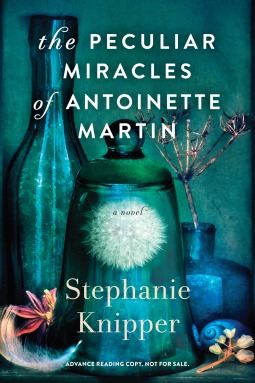Sisters Rose and Lily Martin were inseparable when they were kids. As adults, they've been estranged for years, until circumstances force them to come together to protect Rose's daughter. Ten-year-old Antoinette has a severe form of autism that requires constant care and attention. She has never spoken a word, but she has a powerful gift that others would give anything to harness: she can heal things with her touch. She brings wilted flowers back to life, makes a neighbor's tremors disappear, changes the normal course of nature on the Kentucky flower farm where she and her mother live.
Antoinette's gift, though, puts her own life in danger, as each healing comes with an increasingly deadly price. As Rose—the center of her daughter's life—struggles with her own failing health, and Lily confronts her anguished past, they, and the men who love them, come to realize the sacrifices that must be made to keep this very special child safe.
Goodreads description
The wounded healer is an archetype that can be found throughout literature and is fundamental to Jungian approach to psychotherapy. Generally this is an archetype that applies to adults - the doctor who chooses to heal because of the experience of illness in his past or indeed the detective who is drawn to the job because of an unsolved crime in her personal life. There is, however, another take on this where there is no choice, where the ability to heal others is a "gift" given to the healer who is themselves wounded or damaged. In such a case the healer is often, but not always, a child. This is in line with the image of a miracle-working healer who needs to be innocent. We have seen this child as healer elsewhere in this blog, most recently in Robin Gregory's The Improbable Wonders of Moojie Littleman.
There are three central characters in this novel - the two sisters (Rose and Lily) and Antoinette. The chapters flick between their points of view and stories, also moving backwards and forwards in time to provide the full picture of their relationships. Sisterhood is a central theme of the book. Although Rose and Lily have become estranged, they still love each other with a depth that is only possible between siblings. They are very different from each other - Rose the artistic, outgoing one and Lily the mathematical and introverted one. Indeed Lily is so introverted that she too has autistic tendencies - the obsessive need to count objects at the time of stress being one. Because of this, she is both afraid of dealing with Antoinette and yet has much in common with her.
Stephanie Knipper bravely starts the story with a chapter seen from Antoinette's point of view. Although the book description above says that Antoinette is autistic, the author's position on Antoinette's condition is not clear - indeed when Lily asks about the doctors' diagnosis, she is told: At first they thought it was autism, but that never fit. She's affectionate....It's like she's locked in her body and can't get out. Another major theme of the book is being different. At times Antoinette is described by minor characters as "retarded", which annoys Antoinette and her family. She is different, but so too is Lily. So too are all of us, each in our own way.
Although The Peculiar Miracles of Antoinette Martin is patently a weepy and readers should approach it with Kleenex in hand, I didn't find myself crying. I am not sure why. It is not because I am averse to a bit sobbing over my kindle, I am. Maybe it's because at times the plot twists were predictable (that's the problem with dealing with archetypes). Maybe it was because this is at its heart a feel-good story, with all the characters, even the minor ones, being well meaning. I like my fiction harder-nosed. But that is my problem. A lot of readers are going to love this book.
I received this novel from the publisher in return for a fair review.

